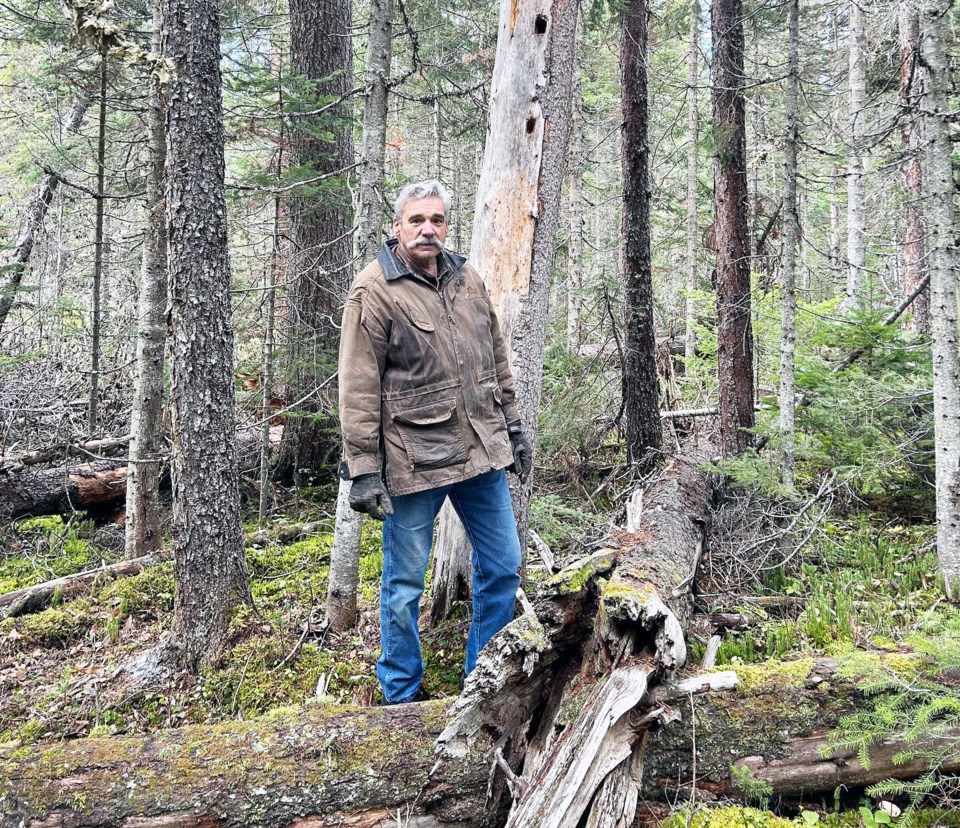Mike Morris says it’s time British Columbia stopped its clearcutting ways.
After six decades of chopping down wide swaths of forest as the most economical and profitable method for forest harvesters, the Prince George-Mackenzie BC United MLA says the province has to change its management practices to restore the health of forests and decrease the likelihood of disastrous floods that threaten communities.
“We’re going to have a forest sector, no question about it, we’ve got 20 million hectares of managed coniferous forest that we planted over the years since we started clearcutting in 1966 and they all need thinning, so pull the plug on clearcut forestry right now,” said Morris. “Let’s start thinning these plantations and we’ll get 2X4s and out of them and maybe 2X6s and pulpwood, but industry completely needs to change their business model.”
Rather than focusing just on turning trees into lumber, Morris says foresters have to be thinking about value-added products they can produce from smaller-dimension timber and consider what they can do to stimulate biodiversity and retain the value of forests for protecting watersheds and mitigating the effects of climate change.”
He says an industry shift to selective logging and thinning will be require a more labour-intensive investment in the tools of the trade that forest companies will require.
“They won’t be able to use these big giant bunchers that go in and just clear the bush down, they’re going to have to reinvent themselves with machines they use in Sweden,” said Morris. “Instead of buying a million-dollar feller-buncher, you’re going to buy a $200,000 machine that can go in between the trees and select-log. You’re going to be putting more people to work, so your labour costs will be higher, but I think we could have triple the number of people working in the forests if we went to that kind of a model.”
2023 was the worst wildfire season on record with more than 75,000 square-kilometres burned. In B.C., the four worst fire seasons on record – 2017, 2018, 2021 and 2023 – have occurred over the past seven years. The effects of fires and beetle infestations have diminished forest supply to the point where mills are closing due to a lack of economically-available fibre.
To revitalize the industry, Morris is calling for radical changes to forest management policies. He admits that prospect probably doesn’t sit well with third-generation forest executives whose family businesses have thrived for decades under the clearcut model, but they will have no choice but to adapt.
“We are in so much trouble from a forestry perspective in the province, it needs to be completely revamped,” said Morris. “The end result is we’re out of harvestable wood under the current business model. We’ve exhausted our timber supply in the province.
“A lot of people are pointing fingers and saying I’m anti-forestry. I’m not anti-forestry. I’m anti-forestry with the way we’ve been doing it for the last number of years, but if we can base it on an ecological model and do it so that we recognize all the values of forest I think we can get there and get the balance right at the end of the day.”
Morris has been following research conducted by UBC forestry professor Younes Alila, which attributes extreme flooding in the southern Interior northwest of Kamloops to clearcutting and loss of forest ground cover. Alila’s hydrology reports suggest that larger intact watersheds decrease the risk of flooding intensity and frequency and that clearcutting leads to more snow reaching the ground and less shade, resulting in faster melting and larger floods.
“He was a civil engineer and he found forestry was using a completely different way of determining hydrological impacts on forestry landscape than what they were taught in engineering school,” said Morris. “Forestry said there was no impact to the land base if we cut the trees down and the engineering (studies) said there’s a significant effect to the hydrological integrity of the land base.”
The research found evidence that tied flooding events, such as the November 2021 floods that swamped Merritt and Princeton, to decades of clearcut logging practices. Morris is part of a peer review panel on a soon-to-be released study which further backs that conclusion.
“The (forestry) textbooks are wrong,” said Morris. “This study is conclusively saying there‘s a link between the massive flooding we see in this province and the amount of forest cover that’s been removed. People better wake up and realize this. There are liabilities and legal ramifications to the province and industry.”



